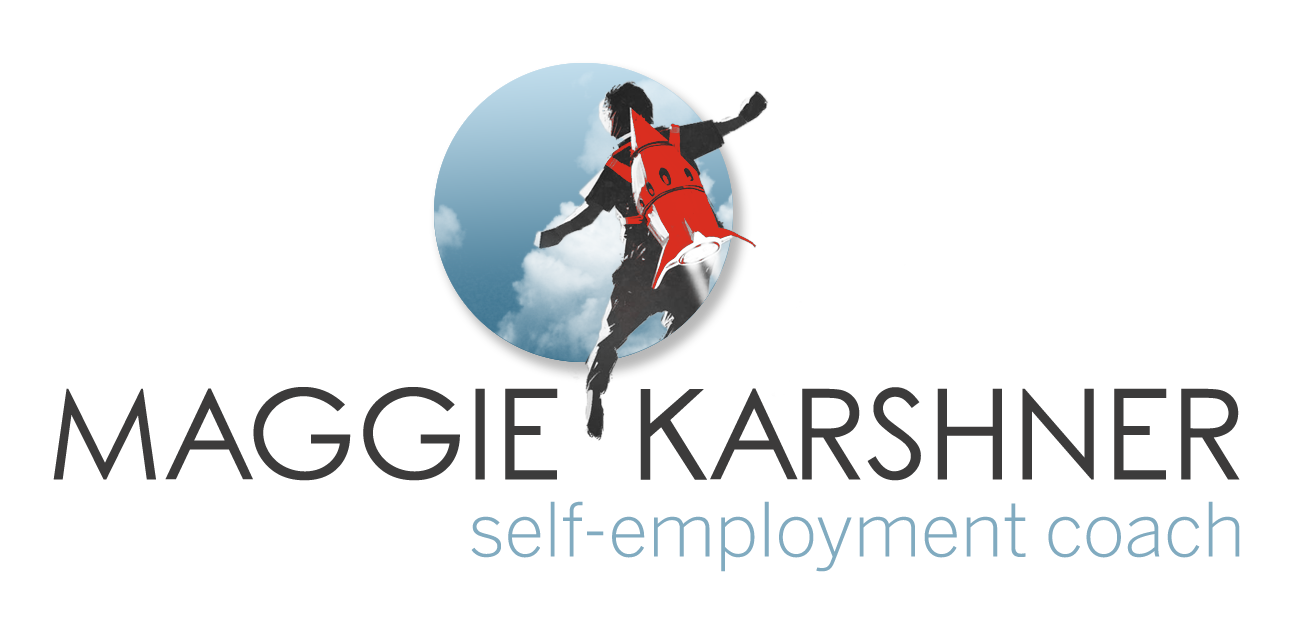Spend Money to Make Money: How to Defy Doom and Avoid Bankruptcy
/When you're just getting started launching your business, expenses can be hard to justify. How do you know which purchases are necessary versus those that are less important? We're told "You gotta spend money to make money." While this is true to some extent, it's counterintuitive to how you've managed your personal finances prior to launching a business. It's challenging to strike that balance between spending enough and not spending too much. You want your business to be successful, but also not a sinkhole of debt.
Business advice often recommends a certain percentage of your revenue. I like to start with 30%. Of all the money you bring in, approximately 30% should be spent on operating expenses. This is a fantastic guidepost for businesses already bringing in revenue, but 30% of zero revenue is zero. So how are you ever supposed to get started?
A logical solution would be to look at the forecasted revenue of your business when it's operating at a reasonable rate. You could use 30% of that number as your budget for expenditures. This works great for folks who are working with a large chunk of funds or investors. For those of us who just want to make our living from our business, we don't have access to deep pockets like those. We're viscerally aware that any money spent on the business is less that we're going to get to take home as pay.
Further complicating things, revenue and how you feel you're doing is a moving target. The world looks very different when you have zero clients, one client, and a bare minimum number of clients. With zero clients you're spending on only the must-haves and hoping you've correctly identified those. As cash flow starts to occur, you're not yet trusting the cash flow will continue. And if you do decide to purchase something from the nice-to-haves, how do you decide which one?
Clear Cut
As you're facing decisions on what to purchase for your business, here's the cardinal rule.
Is this product/service vital to my ideal client's ability to receive my service?
Using this question we can look at a variety of possible purchases and how they shape up.
Absolute Must-Haves
These are the things that you cannot run your business without. You need these from day one in order to get your business off the ground. The specifics of this will vary based on your industry. Here's a general list of what I see as being absolutely vital to launching a business:
- formation expenses (LLC, licenses)
The last thing we want is big-brother getting pissed about him not knowing what you're up to! Getting properly licensed could be snoozed but only as long as your venture is a hobby (e.g. not net positive revenue.) For clarity on what "properly" licensed means, check out The Launch Pad section on Making Your Business Legit.
- domain name
Even if you don't immediately put a website on it, lock in your business's domain name. It's a $20 purchase that you'll never regret!
- email with your domain name
This can be a huge credibility indicator. You might as well spring for it from the start. You also don't need a website on that domain to have an email address from it!
- website
Even for those not selling from their website, this can be a significant credibility indicator. You *might* be able to get away without one if you're leveraging your already existing network for B2B consulting. There are so many easy-to-use platforms these days that this doesn't need to be a significant expense. For support building your own website, check out The Launch Pad section titled DIY Website.
- credit card transaction fees
If you're accepting credit cards your payment processor is going to take a cut. This should be under 3% of each transaction and it's not worth avoiding it. The convenience to the customer and the seller protections for you are worth it.
- Industry-specific software subscriptions
These are must-have programs for the service you provide. For example: Zoom for online coaches, Adobe Suite for graphic designers, or an EHR for mental health therapists. If you're a mental health therapist wondering if you should spring for Adobe Suite... nope, not worth it. (At least not yet!)
- business cards
This might come across as old school, but the truth is they're not dead yet! It's easy to hand someone a small piece of paper, plus it serves as a leave-behind reminding them of you when they come across it again. Much better than an out-of-sight-out-of-mind digital exchange of contact info.
Early nice-to-haves
As the clients and revenue start to arrive, it makes sense to use some of those funds to make your life a little easier. The nice-to-haves are usually things that make service delivery easier on you OR support the promotion of the business. Some of these have free or freemium options that will help you out sufficiently in the early days. And later, when you're able to pay, they'll really expand your efficacy! I love a good free option in this category, even if you know you'll opt for a different paid tool. Here are some common types of software that fall in this category, and free solutions that I know of (no affiliate links here):
- Database/CRM
When you hit the point of not being able to keep track of all your leads, or all the people you've networked with... this is when you need to get serious about a database of some kind. Insightly is what I use and it's free for up to 2 users.
- Scheduling software
For those of us who meet with folks, having a way for them to schedule their own meeting saves so much back and forth. (and even frustration on the customer's side.) Calendly is a free solution for up to one "meeting type." e.g. You could list a self-scheduled free consult through Calendly. Then set subsequent meeting times at that session or via email.
- accounting software
Keeping track in a spreadsheet makes sense up to a point. But when there's a stellar FREE accounting software, why bother with spreadsheets at all?!? Wave Apps accounting is great. They make money through their invoicing's credit card transaction fees. The invoicing features are completely optional, though their rates are competitive with other credit card fees.
- social media posting support
Promoting your business on social media can be it's own full-time job! Making it easier on you frees up more time to do revenue-generating client-facing work! I use Later to organize and schedule my social media posts across multiple platforms. (And I'm *still* using the free version.) Canva is another tool in this category that has a stand-out free version. The paid version can make your life even easier. (But I also still don't pay for this one!)
Approaching Cruising Altitude
As your capacity for client-facing work fills, this is when it's wise to reframe your operating costs as 30% of your gross revenue. For those of us with ultra-low overhead businesses, it can be nearly impossible to fill 30%. This is perfectly fine. 30% is a broad average and you'll come to find the percentage that's most comfortable for your business. And, if you're finding your overhead is very low, consider adding some more nice-to-have expenses. Remember, these could free you up for more client-facing revenue-generating work! I offer more specific recommendations in The Launch Pad, but here are some places to start:
- virtual assistant
As your time fills it's key that you focus on doing the work that only you can do. Having a part-time virtual assistant gives you someone to delegate tasks to. Five to ten hours of VA time per month is a fantastic starting point to start learning to delegate!
- bookkeeper
For some of us, bookkeeping is a relatively low-effort task. For others, it's so stressful this might be an even earlier purchase! Regardless, if we're focusing your time on the work that only you can do, then this is often an easy one to get off your plate.
- more deluxe software
Even better than a different person, what if the computer did the work for you? Consider upgrading to the paid version of one of your tools, or to a completely different product. You've got breathing room and your time is starting to get short. It's time to get serious about time-saving over penny-pinching!
Delayed Gratification
I hope I've been able to clarify the must-haves and the nice-to-haves of your business. It's different for everyone, so don't worry about comparing yourself to others. Don't hesitate to keep a wish list of things you want to buy for your business once you've "made it." Those things aren't going anywhere so save them in a singular place. That way you'll know where to turn when you're ready to expand your expenses!




